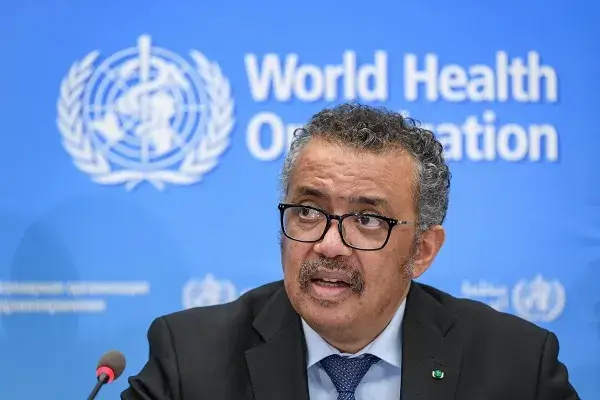News
WHO chief says 2023 a year of avoidable suffering

The Director General of World Health Organisation (WHO), Dr Tedros Ghebreyesus, has described the year 2023 as a year of achievements and “avoidable suffering.”
Ghebreyesus, while reflecting on 2023, which also marked the UN agency’s 75th anniversary, highlighted key achievements and set out objectives for the coming year.
According to him, the outgoing year saw significant milestones and challenges in global public health but also immense and avoidable suffering.
“In May, I declared an end to COVID-19 as a public health emergency of international concern.
“This marked a turning point for the world following three years of crisis, pain, and loss for people everywhere. I am glad to see that life has returned to normal,” he said in a video message on Tuesday.
Ghebreyesus further pointed to other achievements, such as the end of the Mpox outbreak as a global health emergency and the approval of new vaccines for dengue, meningitis, and malaria, which threaten millions worldwide, mainly the most vulnerable.
“Azerbaijan, Tajikistan, and Belize achieved malaria-free status, and progress was made in eliminating some tropical diseases in various countries, including sleeping sickness in Ghana, trachoma in Benin, Mali, and Iraq, and lymphatic filariasis in Bangladesh and Lao.
Read also:Fire guts ex-A’Ibom PDP chair’s house, kills widow, one other
“The path to eradicating another vaccine-preventable disease—polio—has reached its last mile. Thirty more countries introduced the HPV vaccine, advancing our goal to eliminate cervical cancer.
“2023 also saw increased attention to the health impacts of the climate crisis,” Ghebreyesus said.
According to him, health issues featured prominently on the agenda of the COP28 conference in Dubai, where a global declaration on climate and health was issued, emphasising the intersection of environmental and public health challenges.
Additionally, in September, Heads of State at the United Nations General Assembly committed to advancing universal health coverage, ending tuberculosis, and protecting the world from future pandemics.
“Each of these achievements, and many more, demonstrated the power of science, solutions, and solidarity to protect and promote health,” he said, acknowledging the “immense and avoidable suffering and threats to health” over the past year.
He further stated that the barbaric attacks by Hamas on Israel on October 7 left around 1,300 people dead and over 200 taken hostage, while reports of gender-based violence and mistreatment of hostages were deplorable.
“The devastating attack on Gaza that followed has killed more than 20,000 people—mainly women and children—and injured over 53,000,” he said.
The WHO chief also expressed deep concern over the impact on healthcare infrastructure, noting that “as of December 22, only nine of 36 health facilities in Gaza were partially functional, with only four offering the most basic of services in the north.”
He once again called for an immediate ceasefire.
“The global landscape was also marked by conflict and insecurity in countries such as Sudan, Ukraine, Ethiopia, and Myanmar.
“Without peace, there is no health, and without health, there can be no peace,” Ghebreyesus said, noting that, in addition to conflict-related challenges, issues like poverty and lack of access to clean water and hygiene contributed to the spread of infectious diseases. The resurgence of cholera, with over 40 outbreaks worldwide, raised particular concern.
Looking to 2024, the WHO chief highlighted the opportunity to address gaps in global pandemic preparedness.
According to him, governments were currently negotiating the first-ever global agreement aimed at enhancing collaboration, cooperation, and equity in responding to pandemics of the future.
“The Pandemic Accord and plans to strengthen the International Health Regulations represent monumental actions by governments to create a safer and healthier world,” Ghebreyesus said.
The WHO Director-General concluded his message by expressing gratitude to health workers, partners, and colleagues, underscoring the shared journey to achieve health for all.
Join the conversation
Support Ripples Nigeria, hold up solutions journalism
Balanced, fearless journalism driven by data comes at huge financial costs.
As a media platform, we hold leadership accountable and will not trade the right to press freedom and free speech for a piece of cake.
If you like what we do, and are ready to uphold solutions journalism, kindly donate to the Ripples Nigeria cause.
Your support would help to ensure that citizens and institutions continue to have free access to credible and reliable information for societal development.
























